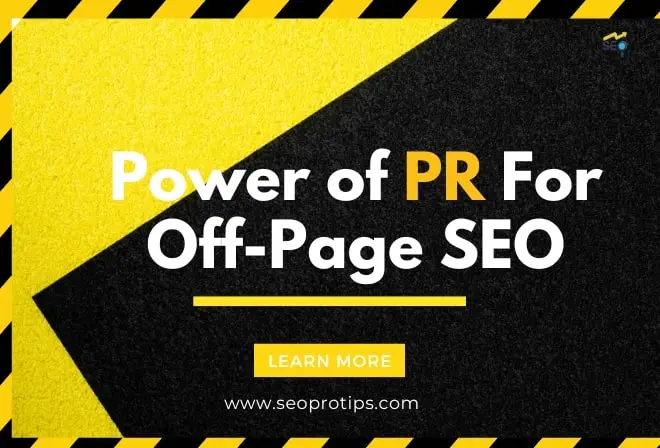Introduction to Off-Page SEO and Public Relations
off-page techniques are crucial for building credibility and authority. By incorporating PR strategies, brands can increase their chances of being featured on top sites, securing valuable backlinks that boost their search engine rankings.
Key Differences Between PR and Traditional SEO
| Aspect | PR-Focused SEO | Traditional Off-Page SEO |
| Primary Goal | Brand visibility and authority | Link building and traffic generation |
| Tactic | Storytelling, media engagement | Guest posting, directory submissions |
| Typical Backlink Quality | High authority, editorial | Mixed (can include lower-quality links) |
| Results Timeline | Longer-term, with high impact | Varies based on link-building strategy |
| Target Sites | Reputable news sites, niche influencers | Blogs, directories, link exchanges |
The Role of PR in Off-Page SEO
PR complements off-page SEO by fostering a brand image that appeals to both search engines and audiences. By securing features on respected platforms, brands gain powerful “votes of confidence” that search engines recognize.
Understanding the Importance of Off-Page SEO
How Off-Page SEO Impacts Rankings
According to a 2023 report by Ahrefs, backlinks are one of the top three ranking factors in Google’s algorithm. High-quality, relevant backlinks from trusted websites send strong authority signals that enhance your website’s search engine rankings.
Why Backlinks Matter for SEO
Backlinks are not just a ranking factor; they’re also a form of referral traffic. As seen in the table below, sites with a higher number of quality backlinks tend to rank better and receive more traffic.
| Website Quality | Total Backlinks | Average Monthly Traffic | Average Google Ranking |
| High Authority Sites | 1000+ | 500,000+ | 1-3 |
| Medium Authority Sites | 500-1000 | 100,000-500,000 | 4-10 |
| Low Authority Sites | < 500 | < 50,000 | 10+ |
The Intersection of PR and SEO
Building Authority Through PR
A study from Moz found that 80% of high-ranking pages have high-quality backlinks from authoritative domains. PR campaigns directly support this by positioning your brand on these high-authority sites.
How PR Strategies Enhance Off-Page SEO
Public relations campaigns focus on stories that attract reputable journalists and bloggers, often resulting in backlinks from trusted sources. These stories are more likely to attract organic backlinks and social shares, contributing to SEO.
How to Use PR for Off-Page SEO Success
Targeting High-Authority Sites
Aiming for high-authority sites is crucial. Research shows that a single backlink from a high-authority site can have the SEO impact of several dozen from lower-quality sources.
Crafting a Newsworthy Story
Stories that perform well in PR tend to have one or more of these qualities: timeliness, emotional appeal, or relevance. Data from BuzzSumo suggests that stories related to emerging trends, new product releases, or industry insights have a 50% higher chance of media coverage.
Building Relationships with Journalists and Influencers
According to a survey by Muck Rack, 72% of journalists prefer working with sources they know and trust. Building these connections can increase your chances of being featured in their stories, leading to authoritative backlinks.
Types of PR Techniques for Better SEO
Guest Posting
Guest posting remains one of the most effective PR techniques for off-page SEO. By contributing to reputable sites, you can build backlinks and establish industry authority.
Table: Success Metrics for Different PR Techniques
| PR Technique | Average Backlinks Gained | Authority Impact | Traffic Impact |
| Guest Posting | 5-10 per post | High (direct control) | Medium to High |
| Press Releases | 3-7 per release | High | High, especially with news coverage |
| Podcast and Interview Appearances | 1-2 per appearance | Medium | High if on popular platforms |
Press Releases and News Coverage
Press releases are effective for announcing new products or milestones. When picked up by news outlets, they can lead to numerous backlinks. A study by SEMrush showed that press releases increase brand visibility by up to 40% on average when distributed effectively.
Key Strategies for Effective PR-Based Off-Page SEO
Leveraging Social Media for Outreach
Social media allows brands to connect with journalists and influencers directly. Data from Statista shows that 67% of journalists use Twitter for finding and sharing stories. Engaging on social media can be a game-changer for your PR-SEO efforts.
Using Data-Driven Insights to Pitch Content
Brands that pitch data-backed content tend to see higher success rates. HubSpot’s 2022 report revealed that stories supported by data see a 47% increase in coverage likelihood, as they’re often seen as credible and valuable by journalists.
Examples of Brands Using PR for SEO Success
Case Study 1: Major Tech Brand
A well-known tech brand launched a PR campaign for its new AI product, resulting in over 200 backlinks from top publications like Wired and TechCrunch. This increased their domain authority by 5 points within 3 months.
| Campaign Element | Metric | Outcome |
| Press Mentions | 200+ | Increased Authority |
| Social Shares | 10,000+ | Boosted Engagement |
| Domain Authority Growth | 5 Points | Enhanced Rankings |
Case Study 2: E-commerce Giant
An e-commerce giant centered its PR campaign around sustainability. This resonated with eco-focused publications, generating quality backlinks and a 25% increase in organic traffic.
| Campaign Element | Metric | Outcome |
| Backlinks | 150+ | Enhanced SEO |
| Organic Traffic Growth | 25% | Improved Brand Reach |
Tracking the Success of Your PR-SEO Strategy
Metrics to Monitor
Tracking metrics can help evaluate the impact of PR on SEO. Common metrics include:
| Metric | Description |
| Backlinks Gained | Number and quality of links obtained |
| Domain Authority | Measures the site’s ranking strength |
| Referral Traffic | Traffic driven from PR-linked sources |
| Social Shares | Amount of engagement on PR-generated content |
Tools to Help Track Results
Platforms like Google Analytics, Moz, and SEMrush are excellent for tracking traffic, backlinks, and social engagement resulting from PR campaigns.
Conclusion
Using PR for off-page SEO is a powerful way to build a credible, authoritative online presence. By combining storytelling and relationship-building, you can earn backlinks from reputable sites, significantly boosting your SEO results.
FAQs
What is the main advantage of using PR for SEO?
PR-driven SEO generates high-quality backlinks, enhancing site authority and visibility in search results.
How does PR differ from traditional link-building?
PR focuses on visibility and authority by leveraging storytelling, while traditional link-building is more link-focused.
Can small businesses benefit from PR-based SEO?
Yes, PR can provide credibility and traffic, making small businesses competitive in the digital space.
How often should I implement PR for SEO purposes?
Aim for quarterly PR campaigns to build authority and keep your brand relevant.
What are the best platforms to find journalists and influencers?
LinkedIn, Twitter, and HARO are effective for finding industry journalists and influencers.

